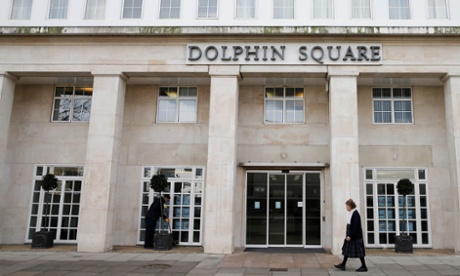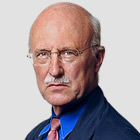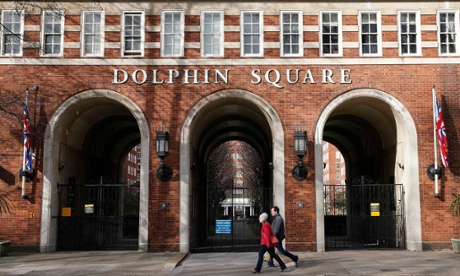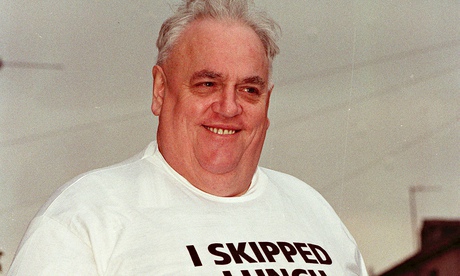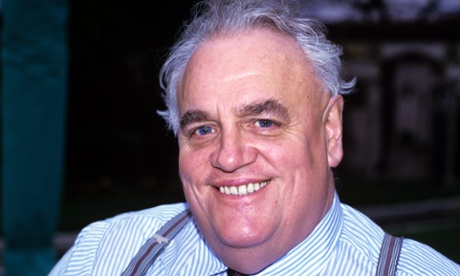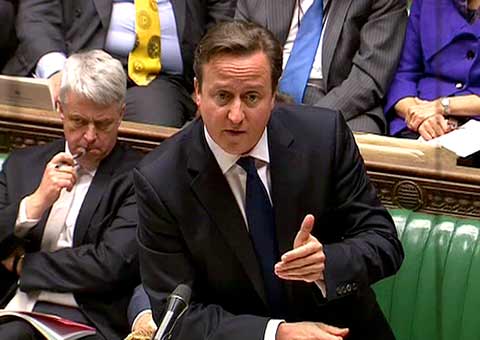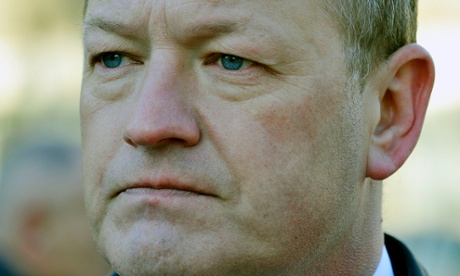Another day, another set of shocking headlines about claims of historic child abuse and high-level coverups, with the Metropolitan police handing a dossier to the Independent Police Complaints Commission to examine 14 allegations of Scotland Yard being complicit in sordid VIP sex.
How could it happen, politicians prominent in the 1980s ask themselves? Were some of them mixed up in coverups, voters ask? So do the media, though they too have questions to answer. I was a Westminster political reporter at the time. I have been asking around.
Two weeks ago it emerged that former MP Harvey Proctor’s grace-and-favour home in Belvoir Castle had been raided by police investigating historic allegations of child abuse. Proctor has denied any involvement in, or knowledge of, the alleged establishment abuse. Other claims fester. A raid was also made on the home of the former home secretary Leon Brittan.
Dead or alive, all have denied charges levelled by alleged victims, some of them in files passed on by current MPs convinced of an extensive coverup by the establishment lasting decades. Yet so did Cyril Smith, who got his knighthood in 1988 despite officials warnings to the then prime minister Margaret Thatcher of paedophile allegations against him, confirmed only after the former Liberal MP was dead. Freedom of Information papers filled in fresh details this month. Smith is again central to today’s claims.
Where will it end? No one knows and at least one of the current MPs that keep up the pressure for full investigation has sleepless nights in case he is wrong. He has said: “It could be complete fantasy or a meticulous hoax.”
Yet this is a controversy with a long fuse.
About 30 years ago, one of Thatcher’s junior ministers took me aside at Westminster and told me of serious allegations against a senior colleague. Since his version of events involved the children of other well-placed Tories, it sounded pretty implausible to me. It still does, so I will not repeat it here, though both men are now dead and other versions of the same rumour have since surfaced. It has recently been in the headlines.
With one borderline exception, it was the only such allegation from the 1980s – now routinely described as alleged establishment coverups – that I heard as a working political journalist which was not also known to a wider public beyond Westminster. In the pre-Twitter era, such stories often surfaced via Private Eye, which picked up all sorts of gossip, and concluded some was untrue.
Occasionally a smear might be traced to the security sources trying to damage someone, as may have been the case with my junior minister: a willing conduit for malice against a reforming minister who threatened vested interests?
As the Met’s Operation Midland ploughs through long-neglected allegations, with the IPCC now formally involved too, and the New Zealand high court judge Lowell Goddard takes up the onerous chairmanship of the official inquiry, how do surviving politicians of the 70s and 80s react to what they are now reading? To claims of politically powerful coverups, even of murder, linked to Dolphin Square, the complex of flats where MPs have lived on weekdays for decades?
Mostly with alarm and surprise, tinged with regret at their own naivety or complacency. Coverups? Perhaps one or two, conceded a few I spoke to. Among such sentiments from old stagers – MPs, ex-MPs, some now peers – and other veterans of Whitehall and Westminster, come admissions that they did hear, or read in the Eye, of shocking sexual allegations against some colleagues at the time.
They came to believe claims of a double-life made against the then Liberal leader, Jeremy Thorpe. But they did not against some others since named – including the Tory MP Peter Morrison and even Smith. An avowedly naive Liberal Democrat colleague of the period admits he was “a peculiar character, living with mum, but no one suggested anything else”.
Unlike sex abuse cases which have rocked TV and showbusiness, no one actually saw anything. Most MPs are less worldly than celebs – Thatcher among them. A child of provincial Lincolnshire, raised in an austere Methodist household, what did she know about such things? A worldlier figure would not have said in praise of her deputy, William Whitelaw: “Every prime minister needs a Willie.”
No old stager recently interviewed by the Guardian – most willing to speak only off the record – recalls hearing anything about the former Elm guesthouse in Barnes, south-west London, let alone the crimes allegedly committed at Dolphin Square in Westminster, which is also part of the IPCC’s new inquiry.
Up to 70 MPs lived in the 1,250-flat complex during the week, often without knowing their neighbours, fellow MPs included. One former resident said: “I only realised so-and-so (a fellow Tory) had been living here for five years when I met him in the lift.” Another added: “ I thought it was where rich men parked ex-mistresses, old ladies with dogs.”
A common reaction to lurid gossip at the time, among political journalists as well as politicians, was: “It can’t be true – for someone would have been arrested.” Respectable provincial newspapers routinely protected readers from sordid tales. Tory ex-ministers with security experience also point out: “In those days, the police were much more subservient to senior politicians, you did not get chief constables with minds of their own.” Some believe that the police were more corrupt, too.
However, as elsewhere in recent long-dated scandals, the culture was different. One very worldly former Conservative MP recalls once being with Lord Whitelaw, the ultimate old school insider, when yet another “Tories and prostitutes” sex scandal broke in the Sunday papers. The reaction of Whitelaw, a future home secretary and deputy prime minister, was immediate. He is said to have asked: “Why has this been allowed to come out?”
Asked about widespread political coverups, even of a murder at Dolphin Square, a former Labour chief whip said: “I don’t see how it would work.” Whitehall was not wholly out of the loop.
Robert Armstrong, who was Thatcher’s cabinet secretary from 1979 to 1987, told me: “One got to know a certain amount about politicians’ sex lives, but I never heard a whisper about paedophilia.”
Officials such as Lord Armstrong were not wholly passive. As Edward Heath’s civil service adviser during his abortive Lib-Con coalition negotiations after losing the 1974 election, he claims the then PM knew the rumours about Thorpe’s private promiscuity. He now says: “Thorpe mentioned the possibility (of becoming home secretary in charge of security files), but that’s the last thing Heath would have offered him.”
Years later, Armstrong also gave Thatcher what he calls a “veiled” warning not to sanction Jimmy Savile’s knighthood for charitable work. She ignored it, as David Steel did in proposing Smith for a knighthood in 1988, despite known allegations against him by the alternative Rochdale Free Press, repeated in Private Eye. Armstrong’s successor, Robin (now Lord) Butler, flagged up concerns about Smith, we now know. So did the political honours scrutiny committee.
That Armstrong and Butler at least raised a problem may reassure the prominent Whitehall-watcher, Prof Peter Hennessy. A journalist turned academic, and now a peer, Hennessy remains astonished that a triple-lock defence line of security services, Special Branch and the tax authorities did not tip off No 10 more effectively about dubious recipients of honours. However, as a 1970s Westminster political correspondent, Hennessy too admits that he shared widespread “come off it” scepticism towards the Eye’s allegations against Smith and others.
Each case is different. Colleagues recall John Wakeham, Margaret Thatcher’s “Mr Fixit” and powerful chief whip , telling MPs who came to him with concerns about Morrison (“a promiscuous gay”, records a Tory contemporary) having cottaging skirmishes with the police: “If someone brings me some evidence I can do something about it, if required.” Wakeham would say years later: “I got no evidence at all.”
The scion of a wealthy Tory dynasty and the MP for Chester from 1974 to 1992, Morrison had powerful friends, including Thatcher, the defence of whose premiership he organised (disastrously) against Michael Heseltine’s challenge in 1990. The suspicion persists that, somewhere along the line, he was protected. “It never got out, but people said ‘they’ll never be able to do that for Peter again’,” recalls one Tory. Morrison quit the Commons in 1992 and died in 1995 aged 51.
“He was a very unhappy man and drank himself to death,” explains the former Tory cabinet minister and friend, who remembers being equally dismissive of unsavoury rumours about Smith. “I looked at Smith and thought ‘what an unlikely figure, that huge bulk and he could hardly walk properly’.”
Evidence suppressed about Smith? Wakeham’s assumption today remains that the director of public prosecutions (DPP) must have decided the evidence wasn’t good enough. This month’s FoI revelations confirmed that assumption. In 1970, the then DPP examined a Lancashire police file and concluded that a conviction would be unlikely. Others say the problem was wider. Last night’s claims on BBC Newsnight, that officers were told to suppress their video evidence against Smith and forget it, on the orders of a senior colleague, suggests the critics are right.
